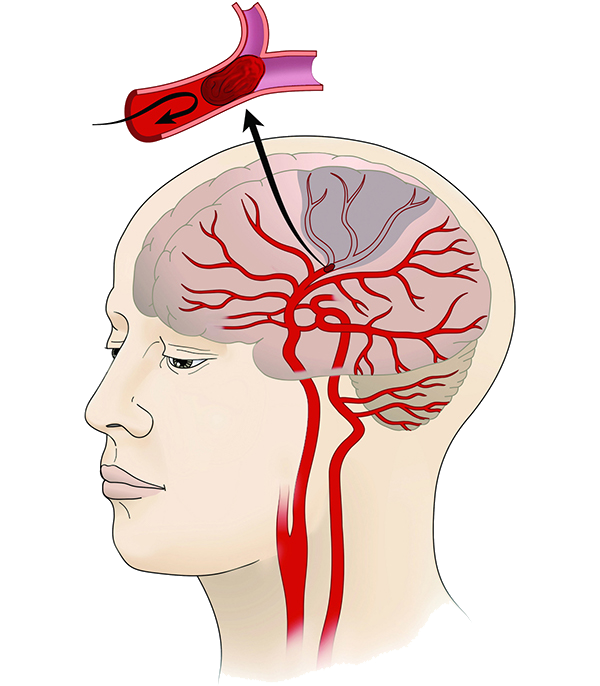A stroke, also known as brain attack, occurs when the blood supply to the brain is interrupted or obstructed, depriving brain tissue of oxygen and nutrients. This can result in the death of brain cells and permanent brain damage or death.
There are two main types of strokes: Ischemic stroke the most common type of stroke occurring when a brain blood vessel is blocked(thrombotic stroke). Furthermore when a clot travels form heart or damaged tissues(embolic stroke).
Hemorrhagic stroke: This occurs when a weakened blood vessel ruptures and bleeds into the surrounding brain tissue, causing damage and swelling. Hemorrhagic strokes can result from conditions such as high blood pressure, aneurysms, or arteriovenous malformations (AVMs).
Strokes can cause various symptoms depending on the part of the brain affected, including sudden weakness or numbness of the face, arm, or leg, trouble speaking or understanding speech, vision problems, severe headache, dizziness, and loss of balance or coordination.
Prompt medical attention is crucial in the event of a stroke, treatments such as clot-busting medications or procedures to remove clots can help minimize brain damage and improve outcomes. Moreover rehabilitation and lifestyle changes may be necessary for recovery and to reduce the risk of future strokes.
